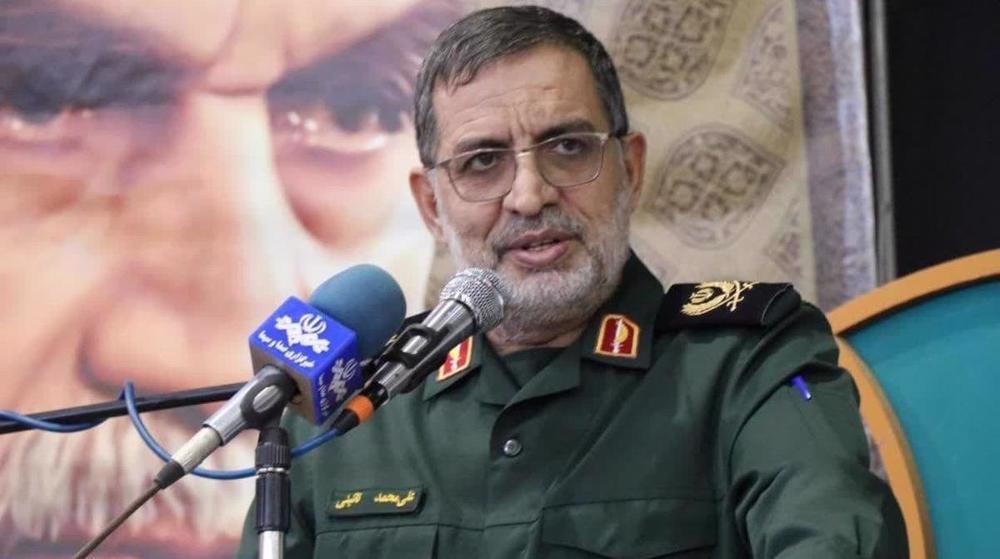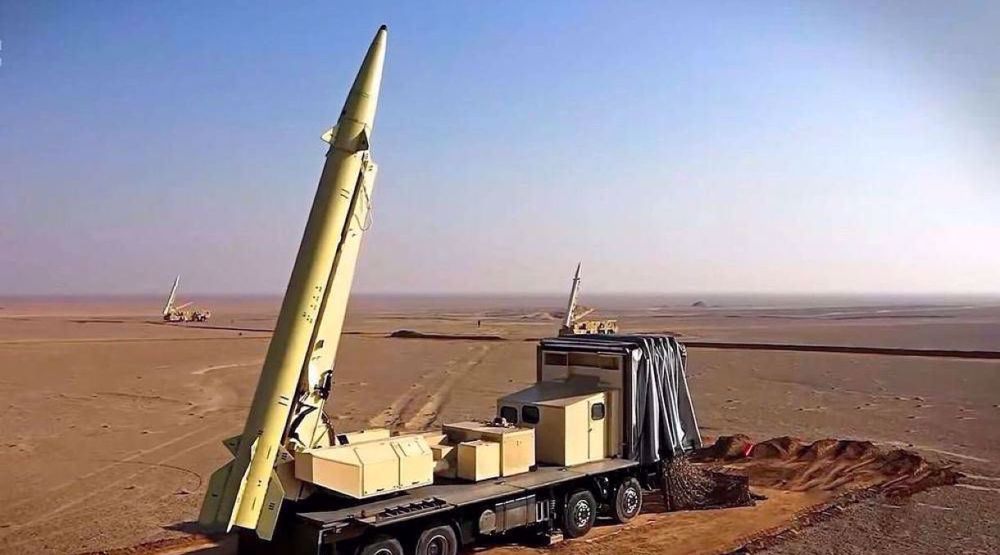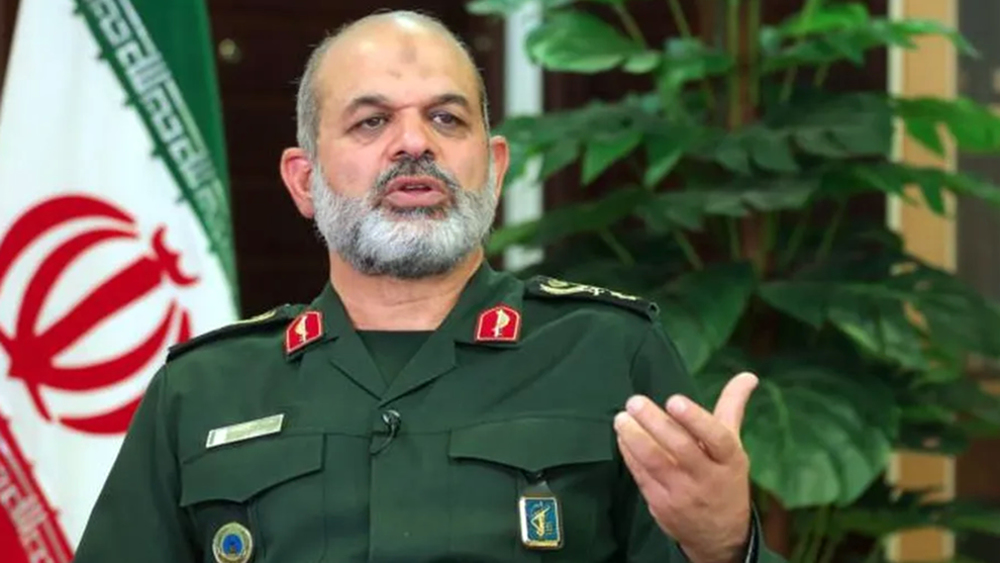'IRGC duty-bound to monitor Iran’s borders, territorial periphery'
A senior Iranian military commander says the practice of monitoring Iran’s territorial periphery is a natural duty of the Islamic Revolution Guards Corps (IRGC) and is not meant to provoke other countries.
Speaking in a televised interview on Sunday, the IRGC’s second-in-command, Brigadier General Hossein Salami, said the presence of Iranian forces on high seas and on the periphery of Iran’s territorial waters is natural.
“We constantly monitor all open seas as well as the waters that fall within our mare clausum. We declare that practice explicitly and publish footage of such activities to show to the world that we guard our territorial waters and our borders,” Brigadier General Salami said.
“This move by us is not provocative; to the contrary, we have a duty to have intelligence command [over potential hostile activities],” he said.
Nothing unnatural
Pentagon officials recently claimed that seven fast-attack boats, belonging to IRGC, had approached the USS Firebolt vessel in the Persian Gulf on September 4 with their machine guns uncovered, though not trained on the Americans.
The American officials claimed that the move amounted to the “harassment” of the US patrol boat.
In the Sunday evening interview, Brigadier General Salami dismissed the foreign media hype over the issue and said the presence of Iranian forces in the area is “nothing new.”
The hype, he said, partially resulted from the fear that emerged following Iran’s seizure of two US patrol boats and their crew that had trespassed on Iranian territorial waters in January.
It is also aimed at stoking Iranophobic tendencies to turn regional public opinion against Iran to either justify the presence of American forces in the region or increase arms sales to regional countries, the IRGC official said.
The seen and the unseen
Elsewhere in his remarks, Salami said Iran’s deterrent power “has been such that, over the past 38 years, while the US and the Zionists (Israelis) have invaded various countries and have launched 12 wars, they have always been acting with care and caution when it comes to Iran.”
“We have reached precisely such a level of authority and deterrence that we can threaten or attack all of our enemies’ interests anywhere, anytime, and with any desired intensity from within our borders,” the IRGC’s second-in-command said.
He said Iran’s enemies are aware of that power — though not entirely.
“The enemy’s understanding of our defensive power is managed,” he said, explaining that, “An important part of our power... has been revealed to the enemy. In order for the enemy not to make mistakes in its calculations, we have revealed a part of our capabilities, although the unseen part [of Iran’s military power] is more than what we have exposed.”
In recent years, Iran has made great achievements in its defense sector and has attained self-sufficiency in producing essential military equipment and systems.
The Islamic Republic, though, has repeatedly assured other states that its military might poses no threat to them and that its defense doctrine is based entirely on deterrence.
China warns US against war on Iran, slams Washington militarism at UN
Pezeshkian orders public release of names of recent riots victims
VIDEO | Press TV's news headlines
Iran to start no war, but Armed Forces poised to defend homeland: Govt. spokeswoman
VIDEO | UNMHA exit: A legacy of failure in Hudaydah as violations persist
VIDEO | Winter hardships deepen suffering in occupied West Bank
VIDEO | Homes under occupation: When living rooms become military posts
War could reach your own doorsteps: Iraqi anti-terror group warns Iran’s enemies















 This makes it easy to access the Press TV website
This makes it easy to access the Press TV website